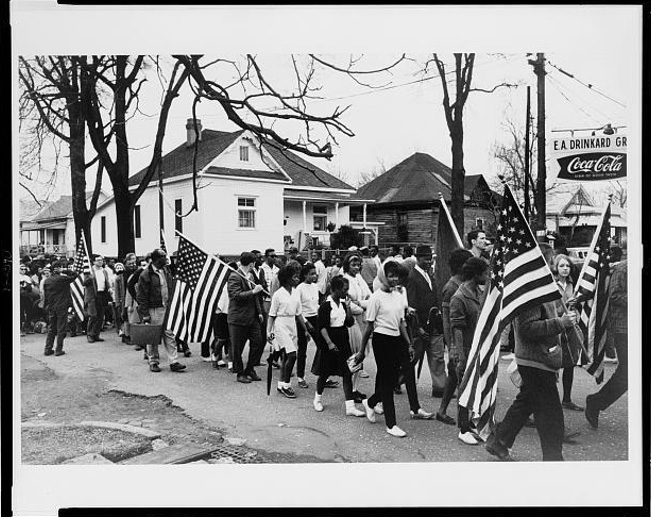The Teachers in the Movement Institute empowered me not only as an educator but also as a Black woman in America. The power of the voice was a constant theme woven seamlessly throughout the week’s activities. Three specific messages resurface for me, offering reassurance that the space during that particular time was where I needed to be: the importance and necessity of examining the complete narrative, who/what is being remembered/forgotten and why, and perhaps the most glaring – the use of oral history as a form of resistance and activism.
History! Herstory! Yourstory! The Importance of Asserting Your Voice in the Making of History

On day one, Dr. Alridge discussed the importance of the Griot to the African and African American communities by utilizing a clip from the movie Roots, a movie my mother has made my siblings and I watch over 25 times! Even so, the space and mindset cultivated by the energy surrounding me allowed me to receive the clip in a different light of understanding and obligation.
Dr. Loder-Jackson encouraged me to challenge the general narrative of passivity often attributed to teachers during the Civil Rights Movement. The powerful message of appropriately and deliberately utilizing my role as educator to fight against injustices was recognized and received. The panel of phenomenal educators that taught during the Civil Rights period inspired me as I wondered if they realized that they were teaching during such a pivotal moment, in not only Black history, but the history of the nation. In their own ways, they responded: “I knew I was a teacher and had a responsibility to my students, and I honored those duties.”
Pride and pain flowed through me as we analyzed ambiguous markers denoting the histories of desegregation (not integration, as noted by Dr. Hyres). Equally, those emotions resurfaced as I skimmed the almost eternally lost documents of our trials and triumphs in UVA’s Small Special Collections Library.
There are so many instances in which the story of the African American struggles and victories have been erased, rewritten, forgotten… and yet still we have found ways to fight back. Amidst the storms and sunshine, we continuously have found strength to cultivate and create spaces for ourselves, to be ourselves, to tell our story. We have always found ways to remember.
For my students, I envision a curriculum that encapsulates the very unique and distinctive history of Africans in America. I envision a well-balanced, honest, and detailed account of the narrative in its entirety (as offered by Dr. Dagbovie) with my students taking part as historians, researchers, influencers, and activists.
In my role as an educator and advocator, I would like to inspire, encourage, and motivate my students to be the authors of their own narratives. I want them to document their journeys from their own perspectives, choosing the space and light in which they would like to be remembered and ensuring that the disremembering of their legacy and their impact is not an option. With elementary students, it can be difficult to encourage thought outside of self (as Dr. Johari Harris noted in her enlightening presentation). I view this notion as a benefit. By utilizing resources such as “The Girl from the Tar Paper School” by Teri Kanefield as models, as well as creating autobiographical assignments, my fifth grade students will begin to tell a story of self. This is wherein I note the beneficial factor of self-interest. Ideally, the students would begin at the start of the school year, revisiting the task each week (developing a rotation in utilizing the different platforms) and creating a chapter each month. Armed with a journal, smart phone (for audio and video recordings), and the knowledge of the “power of self,” students would develop a ten-chapter narrative. This would involve interviewing individuals who may offer insight on the students’ development and reflecting through journaling their journey and understandings thus far. The culmination would come at the end of the year with all ten chapters united to present to the world their experiences told from their own perspectives of who they are and who they are becoming; these would be the beginning chapters of their distinctive and unique histories as told by the lions.
In light of organizations such as R.E.A.L. (Malcolm Solomon) and New Detroit Era, in opposition of the school-to-prison pipeline and illiteracy, in honor of my mother Christine Edmonds-McLaurin, brother Sapien Edmonds, and my many ancestors that guide and protect my energy and existence, and in spirit of Tamir Rice, Trayvon Martin, Sandra Bland and the countless others… I. AM. HERE. And I am prepared to do the work and be the work that will ensure the continuation of US and our stories for generations to come.

